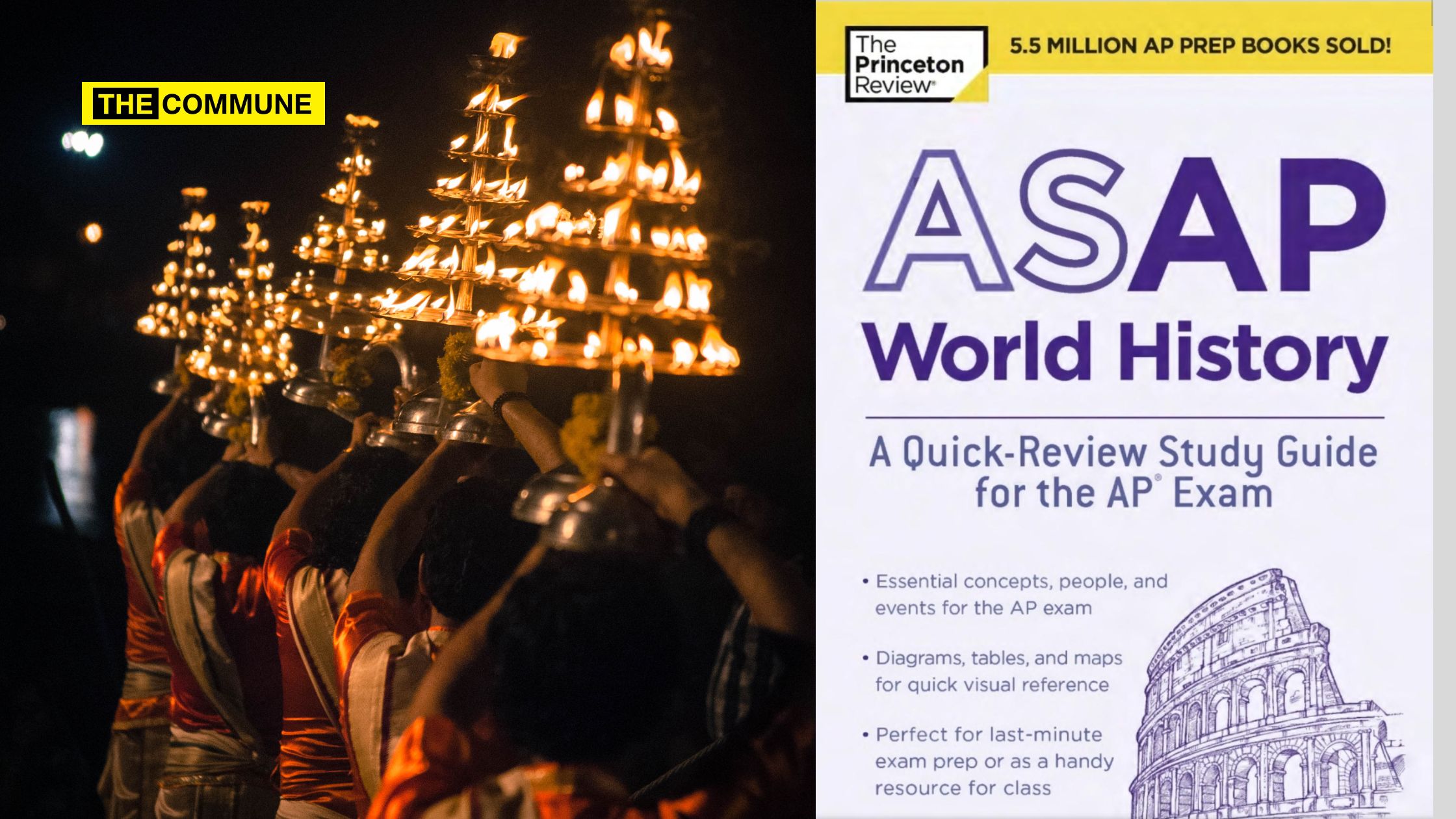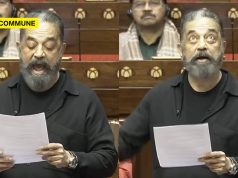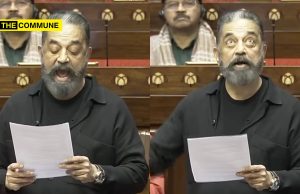
In certain US World History textbooks, Hinduism has been portrayed unfavourably, causing concerns among Hindu Americans about the potential impact of SB403, particularly on Hindu children growing up in the Western context. Parents fear that such depictions in textbooks can shape the perception of Hinduism and its followers among the average Americans from a young age.
A textbook example (pun intended) of #Hinduphobia!
Hinduism is portrayed as "problematic" in some US World History textbooks – this is exactly why Hindu Americans are concerned about #SB403 and the impact on our community, including Hindu children in the west. It is this type… https://t.co/RhpD9beqUv
— CoHNA (Coalition of Hindus of North America) (@CoHNAOfficial) September 1, 2023
The Hindu community in the United States believes that this specific History textbook contradicts the values of promoting harmony, mutual respect, and understanding. Instead, it encourages prejudice, bullying, and the targeting of Hindu-American children. The information presented in these textbooks may lead young minds to perceive Hinduism as being solely associated with “caste, cow, curry, chaos,” while overlooking its substantial contributions to fields such as yoga, Ayurveda, mathematics, science, and more. Unfortunately, many Hindu American children internalize this oversimplified portrayal as the truth, often distancing themselves from their own cultural heritage in an attempt to gain acceptance in wider society.
An excerpt from the 2018 and 2019 editions of the Princeton Review’s ASAP World History highlights the perpetuation of negative stereotypes in these books. Hindu parents believe that this contributes to the bullying of Hindu children in schools.
What’s In The Textbook?
In the section about India, the textbook acknowledges that India, the birthplace of Hinduism and Buddhism, experienced the introduction of Islam in the 10th century through invaders who established a presence in Delhi and promoted Islam for approximately three centuries, starting in 1206.
This excerpt is from Princeton Review's ASAP World History, 2018 & 2019 Editions.
Dear @penguinrandom: Disappointed to find negative stereotypes perpetuated in your book which is leading to bullying of Hindu kids in schools. Let's teach our kids the truth & spread positivity… pic.twitter.com/uLufbqN53Y
— GKChesterton (@GKChesterton000) September 1, 2023
During the Delhi Sultanate period, the text highlights the establishment of colleges, improvements in irrigation systems, and the construction of mosques overseen by Hindu architects and artists.
However, it also mentions that not everything in this arrangement was harmonious. Under this theoretically tolerant regime, Muslims imposed taxes on nonbelievers and even demolished certain Hindu temples. As a result, many Hindus in northern India converted to Islam, either genuinely or for the sake of convenience. Overall, a significant number of Hindus in northern India embraced Islam, while those in southern India adhered to their Hindu traditions.
The lesson also draws comparisons between Islam and Hinduism while presenting some inaccuracies:
- It states that Islam maintains the equality of all people under God, whereas Hinduism upholds the caste system.
- It notes that, in Islam, cows are considered a source of food, whereas in Hinduism, they are revered as sacred. The next point is particularly problematic:
- It suggests that Islam views itself as tolerant of other beliefs and open to blending with them, while Hinduism sees itself as universal and exclusive.
In 2017, the California State Board of Education (SBE), a part of the California Department of Education, made a unanimous decision to reject two textbook programs from Houghton Mifflin Harcourt. These textbooks, designed for Grades K-6 and Grades 6-8, were turned down due to their portrayal of Hinduism and various other diverse communities in an unfavorable manner.
Anti-Hindu bill SB403
SB403, an allegedly “anti-caste discrimination law”, has passed through the legislative process in the state of California. Senator Aisha Wahab was the legislator who introduced the bill, with strong backing from the questionable organisation, Equality Labs. Notably, the SB403 bill was heavily influenced by the Cisco caste discrimination case, even though that case fell flat. However, SB403 has now been enacted into law in the state of California in the United States.
'The level of victimisation of Hindus, by those supporting this unnecessary bill at all levels has been brought home by this tragedy. Californias Hindus have been on the receiving end of outright contempt, dehumanisation and direct oppression, under the guise of…
— Pt Satish K Sharma MBCS FRSA FRAS (@thebritishhindu) July 20, 2023
Cisco Caste Case
Sundar Iyer, a central figure in the Cisco Caste case, shared his story at Caste Con’23 in July 2023. Iyer, originally from India and studying in the US, was sued by the Cisco Research Development Foundation (CRD) along with his colleague Ramana Kompella in June 2020.
CRD accused them of discriminating against John Doe, a Dalit, and denying him a leadership role in Iyer’s startup due to his caste. However, Iyer countered these allegations, stating that he had hired John Doe and offered top positions to other Dalits.
CRD’s claims garnered media attention and were accompanied by articles from caste activists that damaged their reputations. Iyer and Kompella continued to face activist propaganda and harassment, including attacks on their last names. Iyer found it ironic that CRD assigned him a Hindu Brahmin caste solely based on his last name, with Equality Labs, CRD’s partner, making controversial comparisons.
CRD faced criticism for profiling and accusing Hindu Americans of crimes against Dalits without evidence, which the judge dismissed. In January 2023, Iyer and others filed a motion to sanction CRD prosecutors for pursuing a baseless case. CRD dropped the case against Iyer and Ramana but continued to sue Cisco. A white paper in April 2023 accused CRD of corrupt behavior, and in July 2023, California for Justice accused CRD of targeting Indian Americans, calling for Governor Newsom’s intervention.
Who Is Pushing For S403? Equality Labs
Seattle has become the first U.S. city, as well as the first outside of South Asia, to prohibit “caste discrimination”. This move has sparked momentum for similar legislation in California. Those behind this move are a coalition of over 40 American and international Dalit and human rights activists and organizations, led by Equality Labs, based in California.
Equality Labs, which is a George Soros-funded organisation, is led by Thenmozhi Sounderrajan, an American of Indian descent.
Guess who Equality Labs is funded by? pic.twitter.com/YPN6opuKgC
— malika (@malikakas) February 23, 2023
It is noteworthy that her scheduled talk at Google in 2022 was cancelled to avoid division and discord in the community, as stated by Google’s spokesperson, Shannon Newberry, “Caste discrimination has no place in our workplace. We also have a very clear, publicly shared policy against retaliation and discrimination in our workplace. We also made the decision to not move forward with the proposed talk which — rather than bringing our community together and raising awareness — was creating division and rancor,”.
Click here to subscribe to The Commune on Telegram and get the best stories of the day delivered to you personally.




